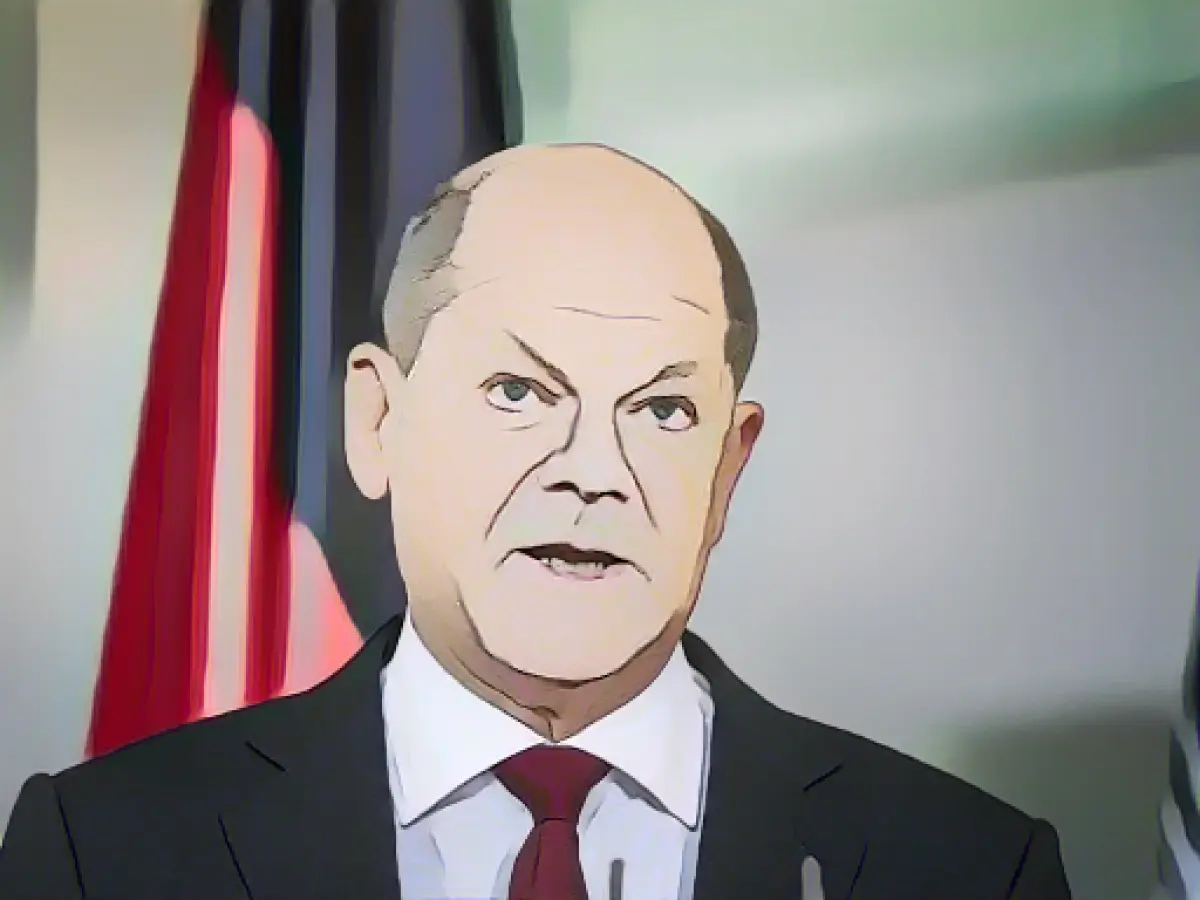Budget Crisis: Scholz Addresses Parliament as Opposition Scrutinizes Debt Maneuvers
Amidst widening calls for leadership, Chancellor Olaf Scholz (SPD) is set to address the budget crisis in the German parliament (Bundestag) this morning. The CDU/CSU bloc, including Jens Spahn, the deputy leader, has challenged Scholz to outline his strategy for ensuring fiscal stability in the 2023 and 2024 budgets.
Anticipating fierce opposition criticism, the government statement in the Bundestag will be followed by a two-hour debate. Critics are expected to attack the government for allegedly violating constitutional debt rules, specifically pointing fingers at Finance Minister Christian Lindner.
Debt Brake Conundrum and its Consequences
In a dramatic turn of events, the German Federal Constitutional Court stripped away 60 billion euros from the 2021 budget, originally intended for coronavirus relief, and reallocated it for climate protection and economic modernization. The ruling, however, also barred the government from creating emergency loans for future years. This unexpected outcome left 45 billion euros in retrospective loans available for the current year.
Denouncing the current 'traffic light' coalition as an anchor of instability, North Rhine-Westphalia's Minister President, Hendrik Wüst, pleaded for the Chancellor to restore confidence by embracing honesty over cunning tactics. Saxony's head of government, Michael Kretschmer, voiced similar sentiments, seeking to avert a potential state crisis.
Examining the Supplementary Budget
Following last Monday's approval of a supplementary budget for the current year, the CDU/CSU parliamentary group, led by Friedrich Merz, has announced plans to analyze its constitutionality. Despite the group's initial reservations, the FDP's approach to the budget might provide a path to legitimize the additional state aid.
With a looming debate about the 2024 budget, Merz declared that the CDU/CSU would be cautiously considerate about legal action against years of special emergency situations if they seemingly violate constitutional norms.
Arranging for Difficult Budget Negotiations
Finance Minister Christian Lindner has initiated preparations for exhaustive budget negotiations, signaling that crafting the 2024 budget requires "concrete efforts" and intense discussions. Meanwhile, FDP parliamentary group leader, Christian Dürr, called for the public to bear austerity in the upcoming years.
Maintaining Compliance with Fiscal Rules
In a letter addressed to the SPD, Green, and FDP parliamentary groups, Lindner urged the need to constructively engage with other political parties in the Bundestag. As a fervent supporter of the debt brake, Dürr maintained that the rule must remain intact, emphasizing the significance of responsible fiscal policies.
Balancing Expenditures and Income
To address the budget crisis, the German government is navigating three primary routes:
- Reforming the Debt Brake: By asserting popular support for its amendment, the government could strike a "grand bargain," involving savings, increased investment, and streamlined bureaucracy.
- Adhering to EU Fiscal Rules: Germany retains leeway to borrow within EU regulations, ultimately permitting more discretion in managing the budget crisis.
- Fiscal Discipline and Transparency: Enhancing expenditure justifications and prioritizing efficiency will ensure that the government's fiscal decisions are both economically viable and justifiable in public opinion.
By implementing these measures, the German government can navigate the budget crisis while upholding fiduciary regulations.








